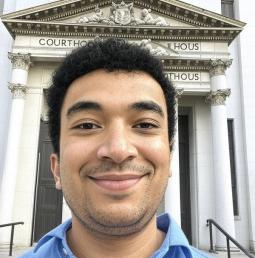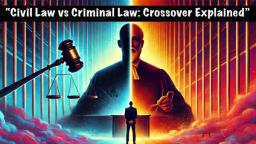Free Speech and False Freedoms: The Legal Limits of Online ‘Truth-Telling’
Are online free speech platforms protecting truth—or silencing it? We explore the legal risks citizen journalists face and the rise of censorship in open forums.
Free speech has proved itself to be one of the great allies of truth and a key guarantor of public integrity. It cuts through cant and distortion, allowing facts to emerge into view—vital for the informed citizenry that democracy depends on.
⸻
When ‘Free Speech’ Means No Scrutiny
But in certain corners of social media—particularly on platforms like Twitter Spaces—a paradox has emerged. Conversations advertised as “open” and “uncensored” often operate on inverted principles: the freedom to assert unverified claims is fiercely defended, while those who challenge them are swiftly muted or expelled.
Hosts frequently permit speakers to deliver lengthy monologues built on fiction, alleging injustice, conspiracy or state abuse, without ever pressing for evidence. These claims, unchecked and unchallenged, are then endorsed by the host through silence or repetition. In these spaces, truth becomes consensus, not something to be demonstrated.
⸻
Silencing Expertise to Preserve the Narrative
The result is a pseudo-dialogue, where the most compelling narrative wins—not the truest one. Hosts prioritise cohesion and spectacle over scrutiny, and group identity over intellectual rigour. Those who do press for clarification or cite facts—solicitors, researchers, court reporters—are often excluded. Not because they are rude or disruptive, but because they are well-informed.
It’s an efficient model. Without the natural friction of cross-examination or verification, content flows faster. There is no slowdown for nuance or qualification. The atmosphere feels urgent, exclusive, and transgressive. But the “freedom” being defended here isn’t the classical liberal freedom of speech. It’s the freedom to speak without scrutiny—and to silence those who disagree.
⸻
Performance Over Truth: The New Censorship
This extends beyond facts. Hosts also steer opinion, discouraging speculation or analysis that doesn’t fit the chosen narrative. Listeners are nudged away from realistic political solutions and towards fatalistic or conspiratorial beliefs. What emerges is not just an aversion to debate—but a subtle, totalising control over what may even be imagined.
In some cases, it begins to echo a form of censorship more far-reaching than that exercised by the British state. But with a key difference: instead of arrest or prosecution, the punishment is exclusion. The power to prevent a dissenting voice from accessing an audience. In today’s information landscape, that carries real weight.
⸻
You Can Opt Out of Twitter Spaces—But Not British Law
That kind of censorship can be evaded by simply opting out. Legal censorship cannot.
British laws restricting speech are real, longstanding, and inescapable. Defamation law, contempt of court, and prohibitions against Incitement of violence have long protected individuals, institutions, and public order. They are not relics. They continue to apply—whether one posts from a British city, or from a beach in Cyprus.
Yet many citizen journalists, perhaps unaware of their legal responsibilities, overlook this. In the digital age, the boundary between participant and publisher has blurred—but the legal position remains clear. If you make content available to the public, you are a publisher. And UK law treats you as such.
⸻
Citizen Journalists Are Citizen Publishers
There is no exemption for amateurs. There is no protection for podcasts or livestreams based on tone or platform. Whether edited or spontaneous, online or offline, you are still subject to:
• Defamation and libel law
• Contempt of court
• Laws against inciting hatred or encouraging terrorism
• Communications offences under the 2003 Act
These offences are not abstract risks. They have historical roots. The laws prohibiting incitement to violence, for example, are modern extensions of rules designed to prevent riots, insurrections, and seditious assemblies. They are part of the fabric of British law—and are taken just as seriously now as they were when first introduced.
⸻
Violence Isn’t Just Illegal—It’s Always Been Illegal
This becomes particularly relevant in online environments where lawful political change is dismissed, and where vague but persistent talk of violent “solutions” begins to surface. Advocating for that—however vaguely, however emotionally—is illegal. It always has been.
Some believe that by publishing through foreign platforms, or while living abroad, they are beyond the reach of UK law. But what matters is not where you sit, or where your server is based—it’s where the harm is done. If your words are aimed at a UK audience, and they cause harm here, UK law may still apply.
That includes British citizens living abroad who post material accessible in Britain.
⸻
You Cannot Outrun the Law with a VPN
As the courts have repeatedly held: you cannot evade legal responsibility by routing speech through another jurisdiction. The law follows the impact, not just the infrastructure.
In an age where anyone can broadcast, blog, or stream, it is essential to understand what that means. A citizen journalist is a citizen publisher. And a responsible publisher doesn’t silence opposing views—they make better arguments. They don’t invite legal risk by pretending it doesn’t exist—they learn the boundaries, and work intelligently within them.
Because accountability is not something to fear. It is what separates the principled from the performative—and the credible from the merely loud.
Conclusion
For the everyday citizen, posting your thoughts online is a bit like lighting fireworks in a petrol station: thrilling, yes—but highly likely to end in a lengthy caution, a ban, or worse, a phone call from someone with “Metropolitan Police” in their email signature.
So unless you’re a seasoned wordsmith with the agility of a barrister and the self-censorship instincts of a Vatican press officer, it might be wise to re-read that tweet three times and check the calendar for any ongoing injunctions.
Freedom of expression hasn’t died—but it’s been reassigned to a gated community guarded by precedent, monitored by algorithms, and patrolled hourly by civil litigators with itchy filing fingers. So yes, speak your truth… just make sure it’s legally bulletproof, grammatically perfect, and capable of passing for academic satire at a stretch.
Because in this brave new world of regulated thought and reputational fragility, silence isn’t just golden—it’s also much cheaper than defending yourself at the High Court.
Well, that’s all for now. But until our next article, please stay tuned, stay informed, but most of all stay safe, and I’ll see you then.





